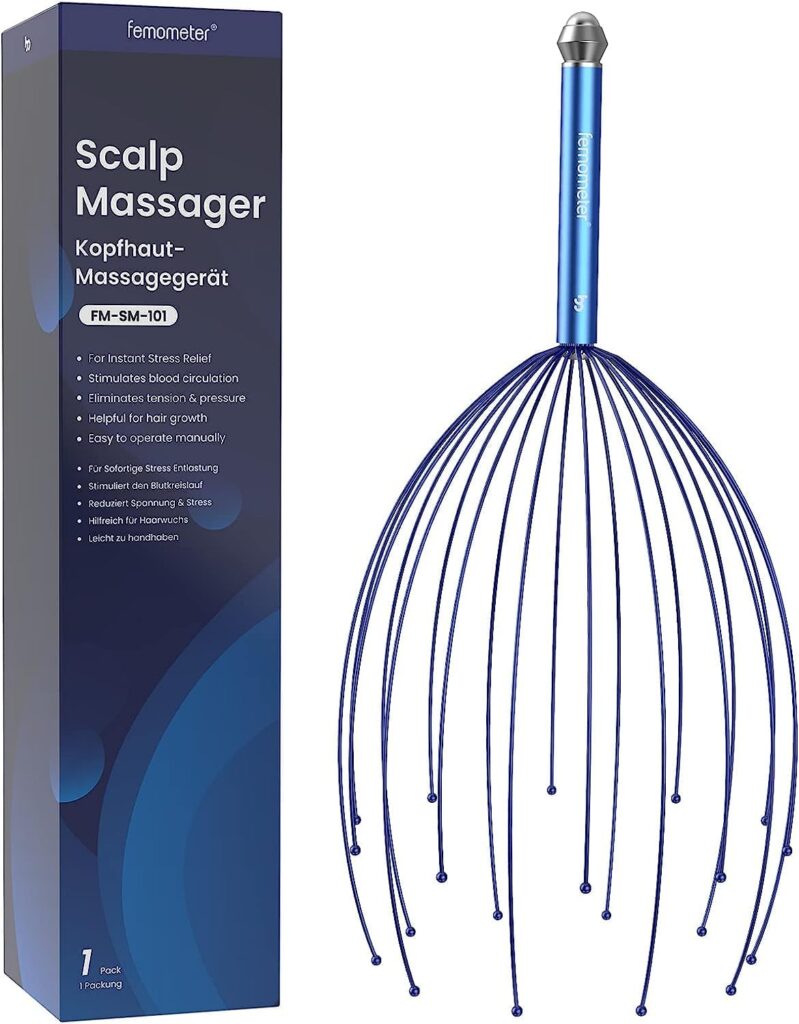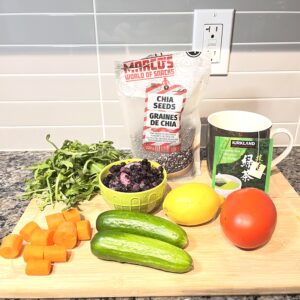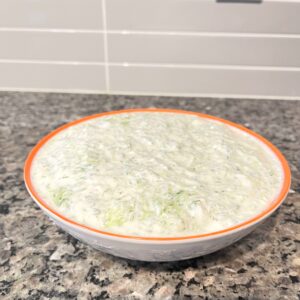What Causes Hair Loss?
Many people suffer from hair loss and there are different reasons for it — some are genetics, some are hormone imbalances, stress and nutritional deficiencies. The most common type of hair loss is androgenetic Alopecia – which is caused by genetics.
The most common causes of alopecia or scalp hair loss can include:
- Insufficiency of minerals and vitamins like biotin, iron, zinc, manganese and vitamins
- Eating disorders such as anorexia or bulimia
- Natural occurrence that causes significant hormonal changes, such as childbirth, breastfeeding or menopause
- Extreme stress
- Liver, thyroid gland, adrenal gland or ovarian disorder
- Deficiency in essential fatty acids caused by a low-calorie diet
- Protein deficiency
- Anemia caused by a low iron diet, as well as poor digestion
- Drug toxicity like chemotherapy for cancer
- Many prescription medications have hair loss as a potential ‘side’ effect
- Starting or discontinuing any hormone therapy, such as birth control pills, menopausal hormone replacement therapy or thyroid hormone replacement
- Perms, hair color, bleach, improper brushing/combing, pulling on the hair
- Allergies to foods, medicines, environmental chemicals or topical drugs
It is critical to consult a dermatologist before beginning any treatment regimen to determine the cause of your hair loss. The first step in finding a successful hair loss remedy is knowing the cause of the hair loss. If your diagnosis is delayed or incorrect, temporary hair loss may become permanent. Your doctor will make sure you get the right treatment for your type of hair loss as soon as possible.
Once you’ve determined the cause of your hair loss, you’ll discover that there are numerous hair loss remedies available, some natural, some medical and some cosmetic. Medical treatment for hair loss has advanced dramatically in recent years.
Cosmetic remedies have become a popular way for people to combat hair loss. But cosmetic hair replacement can be quite expensive.
The good news is that there are many different types of natural hair loss remedies available today, some of which are used to stimulate hair growth and others to keep the hair and scalp healthy in order to prevent hair loss.
Massaging the scalp, which can be combined with hair oils, is one of the most natural and simple ways to combat hair loss. It helps to improve blood circulation and promotes hair growth and thickness.
Massage your head for 5 minutes a day with your fingertips (not your fingernails) applying light to medium pressure as you move in small circles across your scalp.
Let’s explore some of the most popular and most effective natural hair loss remedies.
1. Henna – a traditional herb that has been used for many centuries to condition and maintain healthy hair. The natural properties of henna help promote hair growth and reduce hair loss. It also prevents split ends, reduces hair damage and boosts scalp health.
2. Aloe Vera – another traditional herb that has been shown to be effective in preventing hair loss and keeping hair healthy. It can help to reduce dandruff and unclog hair follicles. You can apply pure aloe vera gel to your scalp and hair a few times per week or simply use aloe vera shampoo and conditioner.
3. Jojoba Oil – a herbal remedy that has been used successfully by people with skin conditions such as eczema, psoriasis and dandruff. Jojoba is rich in vitamins and minerals including vitamins C, B and E as well as copper and zinc. You can apply directly, mix a few drops into your shampoo or conditioner, or simply purchase a shampoo or conditioner that contains jojoba oil as one of its natural ingredients.
4. Lavender oil – used by many aromatherapists to massage the scalp and stimulate hair growth. Studies show that promotes hair health and prevent thinning. Add a few drops into your shampoo and conditioner. It is not recommended to use essential oils, like lavender oil, directly on the skin and you should always mix them in a carrier oil (such as coconut oil, jojoba oil, almond oil, and olive oil) or shampoo.
5. Horsetail oil – a plant-based extract that strengthens and improves the elasticity of hair fibre, aids in the regulation of the hair growth cycle, reduces inflammation and improves cell turnover to create an optimal environment on the scalp for healthy hair growth. You can steep a few teaspoons of horsetail herb in hot water for 10 minutes before drinking it.
6. Rosemary oil – a popular herbal remedy for promoting hair growth and reducing hair loss. According to research, rosemary oil strengthens follicles, moisturises the scalp, increases hair thickness and reduces breakage. Mix a few drops of rosemary oil into your shampoo and conditioner. Just like lavender oil mentioned above, you should never apply essential oils directly to your skin; instead, combine them with a carrier oil, such as coconut oil, jojoba oil, almond oil, olive oil, or shampoo.
7. Saw palmetto – known as a hair growth miracle drug it has long been used as a natural nutrient by Native Americans. Studies have shown that Saw Palmetto may inhibit the hormone DHT, which contributes to hair loss. It can be used in oils or taken internally in capsule form.
8. Pumpkin seed oil – according to research, taking daily doses of pumpkinseed oil by mouth may help bring your hair back. Pumpkinseed oil, like saw palmetto, may prevent testosterone from converting into DHT, a compound linked to hair loss.
9. Coconut oil – contains fatty acids that penetrate the hair shaft and prevent protein loss. It prevents breakage, and help enrich the scalp’s microbiome, resulting in a healthier scalp and hair follicles. Massage coconut oil into your scalp and hair to lubricate the hair shaft.
10. Ginseng – a stimulant that helps improve circulation. It can also be used to remove toxins that clog hair follicles, increasing the likelihood of healthy hair growth and preventing hair thinning and breakage.
11. Green tea – contains healthy antioxidants that help in hair growth and prevent hair loss. Simply brew two bags of green tea in one cup of water, allow it to cool and then apply to your hair. Leave it for a while and then rinse off.
12. Zinc – an important mineral that contributes to immune function. It strengthens the follicles beneath your scalp that nourish your hair. A zinc deficiency can lead to hair loss. Because your body cannot store zinc, you need to add some in your diet every day. Foods containing good quantities of zinc are meat, shellfish, legumes, sesame seeds, nuts, cheese, milk, eggs and dark chocolate.
13. Biotin – another popular supplement for preventing hair loss and increasing hair strength and thickness. A biotin deficiency can cause hair to become frail and unhealthy, which can lead to hair loss. Biotin also helps to maintain the health of your skin and nails. Fish, seeds, meat, eggs, mushrooms, nuts, and vegetables are high in Biotin and should be included in your diet. You can also use one of the many biotin-containing shampoos.
14. Red bell pepper (bell peppers, jalapeno peppers, and other chilli peppers) – capsaicin, which is found in cayenne and chilli peppers, is a natural hair growth stimulator that is highly effective in curing hair loss and improving blood flow, both of which are necessary for proper hair health and protecting hair follicles from the effects of dihydro testosterone (DHT).
Another important nutrient that can help to stop thinning hair are vitamins.
Vitamin A – essential for healthy hair. It repairs and keeps the scalp moist. Vitamin A is found in many hair loss treatments because it is thought to stimulate hair growth. Foods loaded with Vitamin A include: kale, spinach, broccoli, carrots, sweet potatoes, pumpkin, tomatoes, red bell pepper, mango, milk and eggs.
Vitamin B – stimulates blood circulation and increases melanin production, which gives hair a good colour. Foods like salmon, spinach, eggs, milk, beef, chicken, turkey and sunflower seeds are good source of vitamin B.
Vitamin E – helps to stimulate blood circulation, which is necessary to achieve productive hair follicles. The vitamin’s antioxidant properties may help reduce oxidative stress in the scalp which has been linked with hair loss. Sunflower seeds, almonds, peanuts, avocados, beet greens, spinach, pumpkin, and red bell pepper are all high in vitamin E.
Omega 3 – contains essential fatty acids that are good for our heart, skin, hair, bone, brain and breast health. Omega 3 is particularly beneficial in the treatment of dry hair, flaky and dry scalp and reduced blood circulation in the scalp. The fatty acids add sheen, lustre and elasticity to the hair, resulting in stronger hair growth. Nuts, walnuts, flaxseed, chia seeds, flaxseed oil, soybean oil, and canola oil as well as fish such as salmon, mackerel, tuna, herring, and sardines are loaded with Omega 3.
One of the most important steps in treating alopecia is bringing changes in your lifestyle. Regular exercise helps in reducing both physical and emotional stress and restoring hormonal balance. Simple walking is a very effective method for lowering stress levels. Tension, anxiety, and stress result in physical and mental deterioration and hair loss.
Avoid hair styling practices that cause damage. Tight braids, tight ponytails, and excessive heat styling can cause hair damage and increase hair loss.
Also, getting enough sleep and maintaining a healthy sleep schedule can help to promote hair growth and prevent hair loss.
Although there are few risks to using herbal preparations, you should still proceed with caution. Excessive consumption of herbs can cause problems. Always follow the label’s dosage instructions and only take the recommended amount, even if you believe a higher dose will give you better and faster results.
Because everyone is different and what works for one person may cause problems for another, you must monitor your reaction when you begin using herbs. You must also be patient because herbs may take several months before you notice any difference.
It’s important to keep in mind that while these natural remedies may help to prevent or reduce hair loss, they are not a cure for hair loss caused by medical conditions or other underlying factors. If you are experiencing hair loss, it’s best to speak with a doctor or a healthcare professional to determine the underlying cause and develop an appropriate treatment plan.
Always consult your healthcare practitioner before taking any medication, nutritional or herbal supplement, starting any diet, exercise, fitness or wellness program or adopting any treatment for a health problem.
Do you have high cholesterol? Find out what foods can help you lower LDL cholesterol levels naturally.





